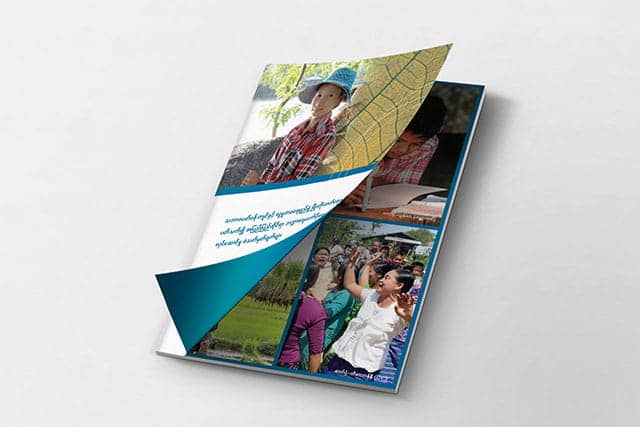MCRB Welcomes Launch of Burmese Version of the IFC Performance Standards

Vicky Bowman spoke on 27 April in Novotel Yangon at the launch of the Burmese translation of the Performance Standards on Environmental and Social Sustainability of the International Finance Corporation (IFC) of the World Bank Group.
Also speaking were Vikram Kumar, IFC Country Director, Daw Khin Thida Tin, Yangon Director of Environmental Conservation Department, at the Ministry of Natural Resources and Environment Conservation, representing DG U Hla Maung Thein, Bernard Sheahan, Director Infrastructure at the IFC, and Nick Cumpston, Development Counsellor at the Australian Embassy which provides financial support to the IFC’s work on sustainability and responsible business in Myanmar.
MCRB worked with the IFC to ensure a high quality translation of this core document for promoting responsible investment including ensuring that the Burmese vocabulary involved, much of which is recently created, is consistent and aligned with emerging Myanmar legal frameworks.
The Index at the end of the Guidelines offered a useful checklist of these terms. Vicky mentioned MCRB’s intention to develop these into a fuller Glossary of responsible business terms which would be useful for translators/interpreters and those providing technical assistance, as well as those involved in environmental impact assessments and other reports.
Vicky explained how the Performance Standards were one of the main reference points used by MCRB in its capacity building on responsible business for government, business and civil society organisations and media, as well as in the Recommendations of its Sector-Wide Impact Assessments and in its FactSheets and Briefing Papers, for example on Indigenous Peoples’ Rights and Business in Myanmar.
The Performance Standards are complemented by IFC’s extensive cross-sectoral and sectoral Environmental Health and Safety (EHS) Guidelines and other Guidance documents including on Security and Environmental and Social Management Systems (ESMS). They are based on extensive learning and multistakeholder consultation, including with business. As such, they offer a realistic set of environmental and social requirements which is user-friendly for business, particularly for situations where there are gaps in national law, as in Myanmar. The Standards recognise the respective role of governments and business and how both must work together on complex and sensitive issues like land acquisition and resettlement to ensure human rights of local people were protected. All businesses – including EIA consultants - could commit to applying the standards and guidelines, not just for those projects in which the IFC was involved.
In Myanmar’s present transition, the IFC standards were useful to help fill in the detail of requirements around environmental impact assessment and gaps in national standards on issues such as resettlement (PS5), indigenous peoples (PS7) and security (PS4). MCRB had also successfully advocated for a specific reference to the standards and the sectoral IFC EHS Guidelines in the offshore oil Production Sharing Contracts signed in 2014/5 to ensure that Myanmar’s legal position was better protected in the event of an accident or poor practice by companies.
Vicky noted that this was the IFC’s 9th language version of the Performance Standards, and that 9 was an auspicious number on Myanmar. She therefore encouraged government and business to study the Performance Standards carefully and use them effectively to ensure success and responsible investment in Myanmar.
All IFC guidance is available on their website. The Burmese translation can be downloaded here. MCRB has also uploaded it to its website as part of the Burmese language material available from other organisations relating to international standards and best practice concerning responsible business and human rights.
 English
English မြန်မာ
မြန်မာ မြန်မာ (unicode)
မြန်မာ (unicode)








